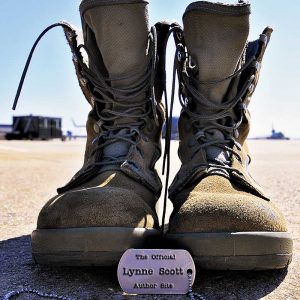27 days, 26 chapters, 63,750 words later – the novel tentatively titled Saving Emily is ready to pass off to my beta readers. The term complete is a long, long way away. There will no doubt be dozens of questions and comments from the betas and then will come the re-writes and the self-editing. Odds are this book won’t make it into the hands of an editor for close to three months – and that’s only if the betas think it’s worth a darn. Just because I think it’s good, doesn’t mean that it will pass the first round of critical reads.
So, how do I feel about the NaNoWriMo challenge? [Sorry – I still think NaNoWriMo sounds like something we should shoot as it’s charging across the Serengeti.] I’m pretty stoked to have accomplished it and have what I think may be a pretty decent first draft. I learned some important things by doing the NaNo.
Before the challenge:
1. A well-developed story plan is essential. Not that you’re going to follow it precisely, but it certainly helps to know where you’re going.
2. Know your characters and take the time to write a short biographical sketch. I had to keep referring back to certain things because I simply couldn’t remember everything. I kept forgetting the last name of one of my characters.
3. A chapter timeline is essential for me. I kept mine open and updated it constantly. Since my story timeline is very tight, I had to pay close attention to what was happening and when. This prevented me from having those annoying issues with “sequencing.” I once read a book in which the hero sat down to an evening meal where there were fireflies, while something bad was happening to a kid in school at recess. That’s the type of thing that make me insane as a reader.
During the challenge:
4. Don’t make the daily word count your nemesis. I figured out early that working on a weekly word count was less stressful for me. Some people like the idea of the small bite, but 1667 words a day can be their own little nightmare. I did have days where I couldn’t manage 800 words. But I didn’t panic because my weekly goal was always attainable.
5. Set the bar high. It’s been my experience that people live up to the expectations placed upon them. I made sure to proclaim my goals here on my website and also to all my friends. The continuous encouragement made a huge difference. Knowing that they were watching also made a difference.
6. Don’t waste a lot of your primary writing time self-editing. Make a note about what you need to fix and move on. I have a sheet of paper where I just jot down the stuff as I think of it. I do my primary writing in the morning and then in the evening I generally go back and read things over. This is frequently when I will take care of the notes I made during the day.
7. Write the scene that’s in your head. It doesn’t matter if it’s out of sequence – if you know what happens to your character at a certain point get it down on paper before you lose it.
After the challenge:
8. Don’t be discouraged if you didn’t make it. This year was not my first attempt. I’d tried several times in the past and did not even get close. In fact, I’d quit without even reaching 15,000 words the last two times that I tried.
9. Don’t throw away anything or delete it. Use it to put together a plan and set your new goals.
10. Remember above all else – this is just a challenge! You have to live in the real world and accomplish real things. Those are what matter!
Question: Would I do it again?
Answer: Yes!


That’s great! Can’t wait to see it! 8)